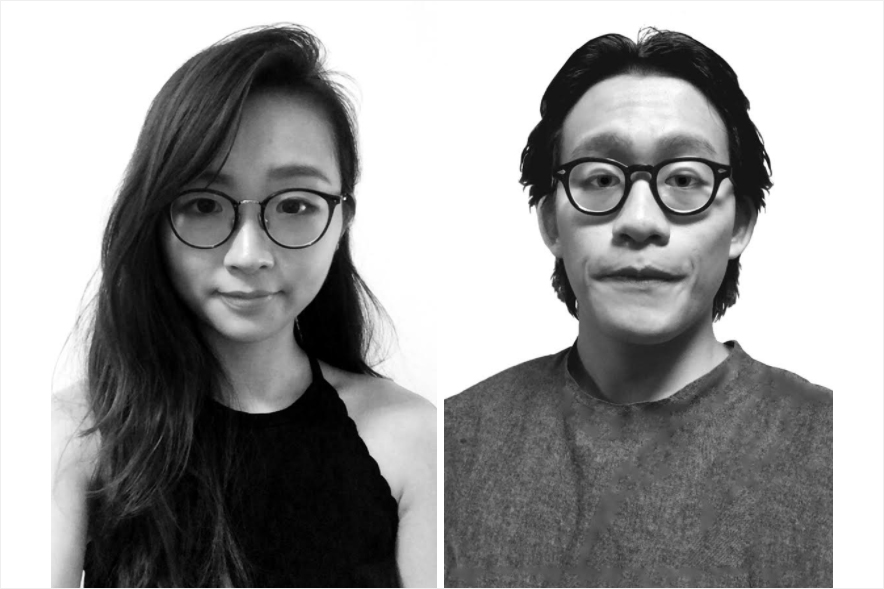Winners of the First International Competition ‘Cities for a Flying World’ Announced
HSE Graduate School of Urbanism has announced the results of the first international contest for students and young professionals ‘Cities For a Flying World’. The contest took place from May 29 to November 7, 2017 and was a part of the admission campaign for the new Master’s programme of the HSE Graduate School of Urbanism ‘Prototyping Future Cities’.
The aim of the competition was to generate insights about the city to come, and to contribute to the development of flying technologies that will transform our environment in the future. The participants were tasked with developing projects for a new city, new building, new device, new social platform or a mix of all of the above. How will the world change when flying devices are everywhere? Who would be new pedestrians in a city of self-driving vehicles and how will social life be changed? What will happen when a window of a house becomes a door to your flying car? How will life be improved in poor neighbourhoods by drone technology? Could there be aerial zeppelin communities and how will they be organised? These are some of the questions that participants were invited to consider.
Projects were evaluated by the jury made up of prominent international experts.
Members of the international jury board:
Silvia Brandi - Barcelona, Director of Communications and External Relations, IAAC MAA Senior Faculty; Ali Basbous - Beirut, Founder and Director of Building by Associative Data; Xavier de Kestellier - London,Head of Design Technology and Innovation ‘Hassell Studio’; Vicente Guallart - Barcelona, Director of a Shukhov Lab, Former chief architect of Barcelona 2001-2015; Daniel Ibanez - Boston, Architect, Harvard GSD, Urban Theory Lab; Sergey Kuznetsov - Moscow, Chief Architect of Moscow; Matthias Kohler - Zurich, Professor of Architecture and Digital Fabrication ETH; Greg Lynn - Los Angeles,Architect, Head of ‘Greg Lynn FORM office’, Ar, Professor of Architecture; Yang Lei – Beijing, Industrial designer; Joachim Mitchell – New York, Architect, Terreform One; Alexey Novikov - Moscow, Dean of HSE Graduate School of Urbanism, CEO Habidatum; Cathy Runciman - London, Media expert, Co-founder ‘Atlas of the future‘; Pati Nuñez - Madrid,Journalist, Writer, Curator and Communication Consultant ‘Pati Nunez Agency’; Matteo Robiglio - Torrino,Architect, Professor Politecnico di Torino; Jon Tugores - Barcelona, Jon Tugores + Architects, photographer and Vueling pilot.
633 young students and professionals from 78 countries registered for the contest. For the final stage, 93 projects from 26 countries were submitted.

He He, Yufan Chen, Zhejiang University of Technology (China), Winner, Project - ’Spheri City’
A year ago, in a seminar of Dr. Huaining Chen, we talked about what the city will be in the future. He believes that aircraft will be the main vehicles in the future city. Hence, the way we enter buildings will be in all directions. In this way, the city will develop in 3D like the sphere instead of 2D. This idea impressed me a lot. So, when Yufan Chen and me found out about the international competition ‘Cities for a Flying World’ of the HSE Graduate School of Urbanism, we registered immediately since this competition's purpose is so consistent with the idea I mentioned before.

Honghao Deng, Jiabao Li, Harvard Graduate School of Design (USA), 2nd place, Project - ‘Twinkle’
The current city lighting system that leaves many areas uncovered induces unsafe perceptions and instigates crimes. The addition of ubiquitous surveillance is an intrusion on privacy and does not take real-time actions. The cold, lifeless light shines in the darkness, trapping people in the solitude of silence. These absences motivated us to create Twinkle - a luminous transformative creature inhabits on light posts.
Twinkles are aerial animals like fireflies, which are curious, playful and are attracted by human activities. During daytime, they rest on urban light posts, expanding their solar panels for charging. At night, they interact with individuals walking on the street in their own way based on their distinct personalities. Twinkles are indirect solutions for improving urban safety without surveillance. We envisage a future that appliance goes beyond machine and becomes a companion with us.

Audrey Chan, ISKM Hon (England), Project - ‘Aerotopia'
Project inspiration and a short description: I am greatly interested in architecture for the people. In my project I was inspired by the current abusive use of energy all over the world, and the possible energy crisis that will happen in the near future. I was also thinking about capitalism, international relationships, and the dramatic time and culture change that is happening in Hong Kong, and all other countries.
Alexei Novikov
See also:
‘The Goal of the Contest Is to Select Bold Ideas Aimed at Fostering a More Equitable Global Development’
HSE Vice Rector, Head of the BRICS Expert Council–Russia and Co-chair of the BRICS Civil Forum Victoria Panova, and Dean of the HSE Faculty of Humanities and Chair of the Contest Jury Felix Azhimov, announced the primary objectives of the contest, its format and potential participants during a press conference at TASS. Nationals from the BRICS countries, aged 18 to 45, are eligible to apply for participation in the contest. The jury will select ten winners, three of whom will be given the opportunity to attend the BRICS Civil Forum in Moscow in person.
HSE University to Reward Students Who Write Their Thesis Using AI
HSE University has launched a competition for solutions using artificial intelligence technology in theses work. The goal of the competition is to evaluate how students use tools based on generative models in their 2024 graduation theses (GT).
Imprint: An Open Competition for Photographers
The ‘Photography’ educational track of the HSE Art and Design School is launching an online magazine called Imprint. The magazine will focus on collecting, summarising, and making sense of information about modern photography in Russia. The school will support talented photographers and offer them a platform for creating, developing, and uniting.
'Unconventional Thinking Can Be Cultivated through Competitions Like Physics Tournaments'
Last week, university students from all over the country came to HSE University for the All-Russian Student's Tournament of Physicists. The tournament took the form of battles in which teams tackled physics problems while taking turns in the roles of speakers, opponents, and reviewers. Based on the competition results, the combined team 'Volume Dependence' emerged as the winner and will participate in the upcoming international tournament in Zurich.
Researchers at HSE University Identify the Most Walkable Areas in Moscow
Experts at HSE University and Lomonosov Moscow State University examined the available data on Moscow's walkability and found the central and south-western parts of the city to be more walkable than others. However, the eastern and south-eastern areas are in need of improvements to make them more pedestrian-friendly. The study has been published in Cities.
Second Season of ‘Parajanov—100’ Contest Launched at HSE Art and Design School
As part of a continuing exploration of the national cultural context, the HSE University Art and Design School and the Russian-Armenian (Slavonic) University, in collaboration with the Sergei Parajanov Museum and the Artists' Union of Armenia, have announced the second open international online contest for collage in animation dedicated to the centenary of Sergei Parajanov’s birth.
HSE University Urban Planners Take Part in Global Mayors’ Forum in Guangzhou, China
A team from HSE University's Faculty of Urban and Regional Development took part in the Global Mayor’s Forum—a global event in urban development. Held in December 2023 in Guangzhou (PRC), the largest congress of urban planners brought together more than 800 guests from 65 cities and 37 countries, as well as nine international organisations.
Card File: Travel Diary
Optimising a city's transportation system requires insights into the dynamics of urban traffic to understand where, how, when, and to what extent people travel within the city. The rationale behind route selection and the choice of transportation mode are also of importance. The primary source of this data is the travel diary, a tool designed to survey people's transport behaviour. Based on a paper by Maria Sergienko, a master's student of the HSE Faculty of Urban and Regional Development, IQ.HSE examines how people's daily travel can be described in detail and why an automated diary cannot yet completely replace its manual counterpart.
‘Seeing Moscow Ranked First among the Cities of BRICS Countries Is Pleasant, but Not Surprising’
An international consortium of research organisations from China, India, and Russia, including HSE University’s Faculty of Urban and Regional Development represented by experts from the Vysokovsky Graduate School of Urban Studies and Planning and the Centre for Social Research and Technological Innovation (CITY), is developing an index of technological and spatial urban development (the Urban & Innovation Environment Index). Recently, a list of the top 10 largest cities of the BRICS countries was published on the project’s website. The Russian capital took the first place in the ranking, followed by Beijing, Shanghai, Sao Paulo, and Guangzhou.
Summer University 2023: ‘A Good Introduction to Urban Studies’
At the start of August, HSE University held the tenth annual Summer University. This year’s programme took the form of a workshop on urban studies. The participants attended four courses from HSE University faculty and invited experts and worked on their own projects to develop a cultural heritage site. Jung Woo Lee, from South Korea, shares his impressions of the Summer University.


